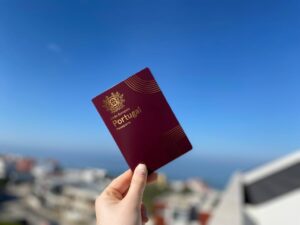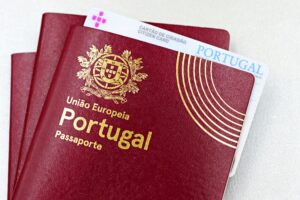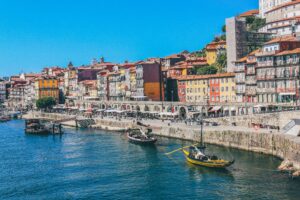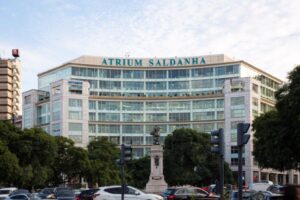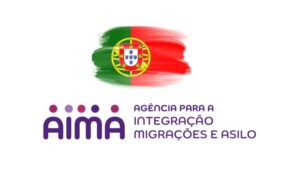Portugal’s new tax incentive regime for qualified professionals is now fully operational and accepting applications. The Tax Incentive for Scientific Research and Innovation (IFICI), commonly known as NHR 2.0, offers significant tax advantages for the right candidates. Here’s everything you need to know about qualifying for and benefiting from this attractive program.

What is NHR 2.0 (IFICI)?
The IFICI is Portugal’s strategic response to attracting top-tier international talent. Unlike its predecessor, which welcomed a broader range of applicants, NHR 2.0 specifically targets highly qualified professionals in innovation, research, and key economic sectors.
This isn’t just a tax break. It’s Portugal’s investment in building a knowledge-based economy. The program offers substantial benefits to those who can contribute to the country’s technological advancement and economic growth.
The Benefits That Make a Difference
Tax Advantages You Can Count On
- 20% flat tax rate on Portuguese income derived from the qualifying professional activities (versus standard rates up to 48%).
- Complete exemption on most foreign-sourced income including dividends, interest, capital gains, and rental income.
- Tax exemption for gifts or inheritance to direct family members.
- No wealth tax for most residents.
- 10-year duration with no renewal option—use it wisely.
- EU tax residency in a stable, white-listed jurisdiction.
What’s No Longer Included
The new regime has strategically excluded pension income from tax benefits, reflecting Portugal’s shift from attracting retirees to building an active professional workforce.
Who Qualifies for NHR 2.0?
To be eligible for IFICI, you must meet the personal requirements (new tax resident, 5-year cooling-off period) AND fall into one of the following professional categories:
- Higher Education & Scientific Research: For professors and researchers working within Portugal’s national science and technology system.
- Certified Start-ups: For employees or directors of government-certified start-up companies in Portugal.
- R&D Personnel: For staff directly involved in R&D tasks whose costs are eligible under the SIFIDE R&D tax incentive.
- Productive Investment Projects: For roles within large-scale investment projects (over €3M) that have contractual tax benefits.
- Highly Qualified Professions in Qualifying Companies: This is the most complex pathway. An applicant must meet all three of the following conditions:
- The Job: The role must be on a specific list of highly qualified professions (e.g., CEO, ICT specialist, doctor, engineer).
- The Qualification: The individual must have either a PhD (EQF Level 8) OR a Bachelor’s degree (EQF Level 6) plus at least three years of relevant experience.
- The Company: The employer must be a qualifying entity, such as a company that exports at least 50% of its turnover and operates in a specific economic sector.
Who This Program Really Targets
The IFICI is designed for professionals in:
Technology & Innovation
- IT specialists and software developers
- Data scientists and AI researchers
- Digital transformation consultants
- Fintech and blockchain experts
Research & Development
- Scientific researchers (PhD holders particularly favored)
- R&D project managers
- Innovation consultants
- Academic researchers moving to Portuguese institutions
High-Value Services
- Management consultants working with exporting companies
- Engineers (excluding architects and designers)
- Medical professionals
- University professors and educators
Strategic Industries
- Manufacturing specialists in exporting companies
- Clean energy sector professionals
- Biotechnology researchers
- Advanced materials specialists
Double Taxation Agreements (DTAs): A Key Benefit
A core advantage of Portugal’s tax regimes lies in its extensive network of Double Taxation Agreements (DTAs) with 81 countries. These agreements ensure that if income can be taxed in the source country, Portugal will typically exempt it from taxation for an IFICI holder. This framework is crucial for preventing the same income from being taxed twice and is fundamental to how the foreign income exemption works in practice.
Essential Requirements You Must Meet
Non-Negotiable Criteria
- No Portuguese tax residency in the previous 5 years.
- Never used the old NHR or other Portuguese tax incentive programs.
- Establish tax residency in Portugal after January 1, 2024.
- Work in qualifying activities or for eligible companies.
The Application Timeline
- General deadline: January 15 of the year following your tax residency.
- Current transitional deadline: March 15, 2025 (for those who became residents in 2024).
- No exceptions: Miss the deadline, miss the opportunity.
How NHR 2.0 Complements Different Portuguese Residency Pathways
Understanding how NHR 2.0 works with various Portuguese visa programs can help you choose the right immigration pathway for your situation.
For Golden Visa Holders
If you’re pursuing or hold a Portuguese Golden Visa and work in qualifying sectors, you should be aware that NHR 2.0 provides additional opportunities. This is particularly relevant for:
- Tech entrepreneurs establishing Portuguese operations
- Investment fund managers relocating to Portugal
- Consultants planning to serve Portuguese exporting companies
For D8 Digital Nomad Visa Applicants
D8 visa holders considering work with Portuguese companies or establishing qualifying businesses should understand NHR 2.0’s potential benefits:
- Software developers planning to work for Portuguese tech companies
- Digital consultants considering service to export-oriented businesses
- Remote workers thinking about establishing Portuguese entities in qualifying sectors
For D2 Entrepreneur Visa Holders
D2 visa holders establishing qualifying businesses in Portugal should be aware of NHR 2.0’s potential advantages:
- Tech entrepreneurs launching Portuguese startups in qualifying sectors
- Manufacturing business owners with export-focused operations
- Innovation-based service providers targeting international markets
- Researchers commercializing their scientific work through Portuguese entities
For D7 Visa Holders with Work Plans
While D7 visa is primarily for passive income, holders who may transition to active work in Portugal should understand NHR 2.0:
- Those considering consulting or part-time professional work
- Passive income recipients who might start Portuguese businesses
- Those potentially moving from retirement to active professional engagement
Application Process: Getting It Right
Step 1: Obtain a Portuguese Tax Number (NIF)
Before anything else, you must obtain a Portuguese Tax Identification Number (Número de Identificação Fiscal – NIF). This 9-digit number is essential for all financial and legal activities in Portugal, including employment and applying for tax residency.
We can assist you in obtaining this, please click here.
Step 2: Establish Qualifying Employment
Secure employment or self-employment in eligible activities before applying for tax residency.
Step 3: Become a Portuguese Tax Resident
- Spend 183+ days in Portugal, OR
- Maintain a habitual residence showing intent to stay
Step 4: Gather Required Documentation
- Employment contracts or business registration
- Academic credentials and professional experience proof
- Evidence of non-residency in Portugal for 5 years
- Company eligibility documentation (if applying under the ‘Highly Qualified Professions’ pathway)
Step 5: Submit Your Application
Applications go to different authorities depending on your profession:
- Foundation for Science and Technology (researchers)
- AICEP (business professionals)
- Tax Authority (general applications)
- IAPMEI (innovation sector professionals)
Strategic Considerations for Success
Timing Is Critical
The most successful applicants coordinate their residency establishment with qualifying employment. Don’t establish tax residency first and then look for qualifying work—you may miss application deadlines.
Company Selection Matters
If applying under the ‘Highly Qualified Professions’ pathway, carefully verify that your potential employer meets export requirements and operates under qualifying economic activity codes.
Documentation Standards
Portuguese authorities expect comprehensive documentation. Half-measures or incomplete applications face delays or rejection.
Why Choose Portugal Now?
Portugal’s NHR 2.0 represents one of Europe’s most attractive tax regimes for qualified professionals. With political stability, EU membership, excellent quality of life, and strategic location, Portugal offers more than just tax benefits—it provides a platform for professional and personal growth.
The window of opportunity is open, but the program’s selective nature means spaces are limited to those who truly qualify and can contribute to Portugal’s economic development goals.
How The Golden Portugal Supports Your Portuguese Residency Journey
Understanding how NHR 2.0 complements different residency pathways helps you make informed decisions about which Portuguese visa program best suits your professional and personal objectives.
Ready to explore Portuguese residency? Our experienced local immigration team can assess your situation and recommend the most suitable visa pathway for your specific circumstances and long-term goals.
Contact us today for a consultation about Portuguese residence or citizenship paths that align with your professional background.


